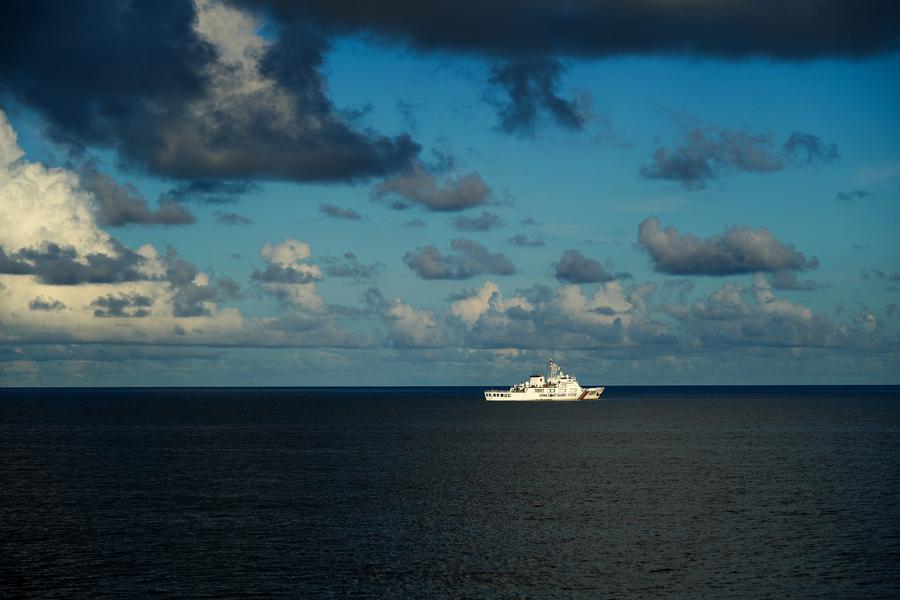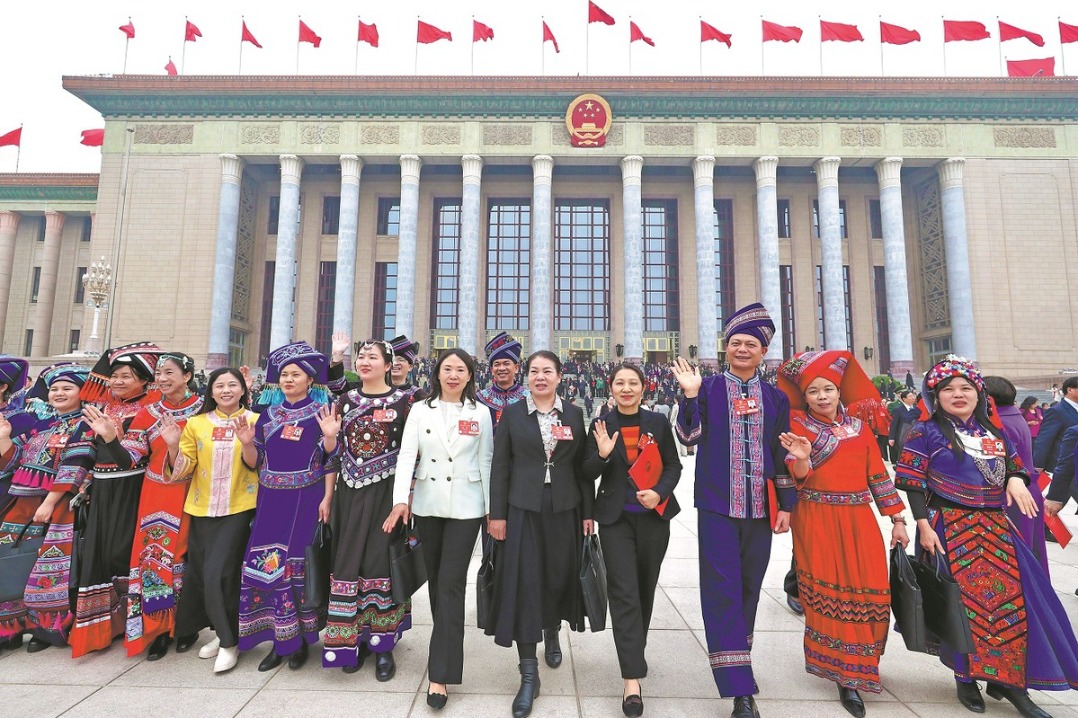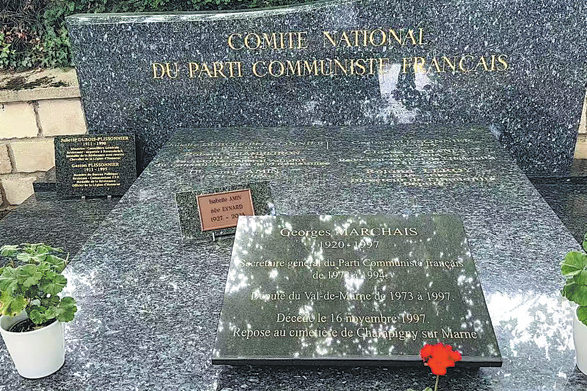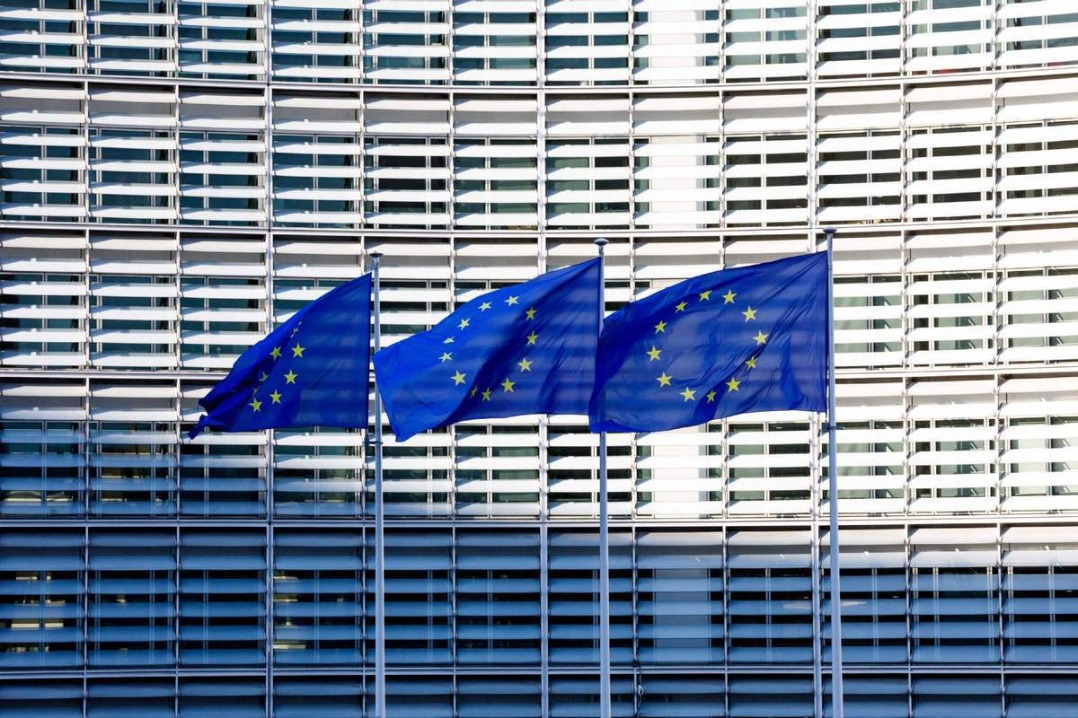Manila creator of trouble in South China Sea: China Daily editorial


It has become routine for the Philippines to play the trick of a thief crying "stop thief" in its repeated attempts to infringe upon China's maritime interests and territorial sovereignty in the South China Sea. Its aim is to stir up trouble and create a fait accompli to maximize its territorial claims in the region.
In yet another provocative move, Manila sent two government vessels to illegally intrude into the waters off China's Tiexian Reef on Sunday, prompting China Coast Guard ships to take legal and reasonable enforcement "control measures" against the trespassing vessels and expel them from China's jurisdictional waters.
Yet distorting the facts, a Philippine Coast Guard spokesman on Monday accused the CCG of using "bullying tactics and aggressive actions" against the Philippine ships resulting in a collision. The logic is akin to a thief who has broken into someone's house accusing the confronting homeowner of resisting and preventing the intended robbery. To justify its actions, Manila, echoing Washington's words, seeks to portray China in a negative light, using selective and distorted information and hyperbolic rhetoric to support accusations of Chinese expansionism and non-compliance with international law.
The full responsibility for the collision lies with the Philippine side. As a CCG spokesperson pointed out, it was because the Philippine vessel ignored multiple warnings from the Chinese side and dangerously approached the CCG vessel that the collision occurred.
Manila's brazenness in confusing right with wrong and its reckless actions to stir up trouble in the South China Sea can be attributed to the support it receives from the United States, which is still pursuing a strategy to contain China in the "Indo-Pacific" region.
Immediately after the incident on Sunday, US Ambassador to Manila MaryKay Carlson shamelessly praised the Philippine personnel involved in the incident for their "tremendous valor and skill in the face of China's dangerous ramming and use of water cannons". Such duplicitous remarks reveal the US' intention to push the Philippines to the forefront in its bid to destabilize the South China Sea.
China has indisputable sovereignty over the Nansha Islands, including Tiexian Reef and its adjacent waters. Yet the Philippines has long coveted the Chinese reef and persistently attempted to occupy it. The provision of military equipment and funding by the US, such as the significant aid packages for the Philippine Coast Guard and armed forces has emboldened Manila, not only heightening the risk of conflict but also diverting attention from the pressing need for cooperative solutions to shared challenges in the region.
China has no other choice but to take all measures necessary to safeguard its sovereignty, security and maritime interests in the South China Sea. It also needs to protect the ecosystem in the waters around the Nansha Islands and other places in the South China Sea as the Philippines' illegal actions not only violate China's territorial sovereignty, breach the Declaration on the Conduct of Parties in the South China Sea, and undermine peace and stability in the region, but are also causing severe damage to the fragile coral reef ecosystems in the waters, according to a report released by the Ministry of Natural Resources in April.
The Philippine government's intensified efforts to challenge China's sovereignty in the South China Sea might be a strategy to divert domestic public attention, as growing discontent over increasing corruption becomes more prevalent. Mass protests swept across the country recently over the alleged plunder of funds from flood control projects meant to shield communities from disasters. Lawmakers have uncovered over $9.5 billion in contracts since 2022 — the start of President Ferdinand Marcos Jr's presidency — tied to substandard, undocumented or entirely unbuilt projects.
The Declaration on the Conduct of Parties in the South China Sea, signed by China and members of the Association of Southeast Asian Nations in 2002, is a testament to regional countries' collective commitment to peace and stability. The Philippines as a party to the DOC should uphold that commitment and cease its provocations.
The question is for how long will Manila continue to cast reason to the wind at the cost of regional peace and stability.


































